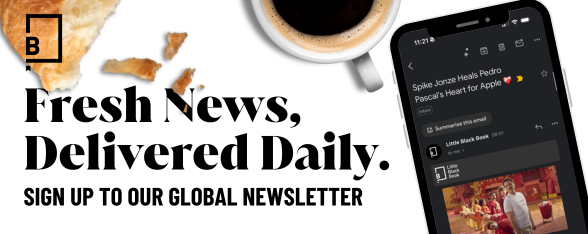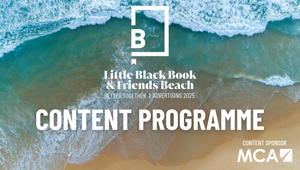
How Heineken is Using Psychology to Nudge Drivers

Being a designated driver is no fun. Surrounded by increasingly inebriated friends or colleagues, pushing you to break and have just one or two drinks for the road – it can be an exhausting experience, testing the very limits of willpower. But one beer brand is trying to change all that and has been investigating behavioural nudges designed to make it easier for drivers to avoid drinking in social situations. Heineken has teamed up with psychologist Dr. Helena Rubinstein, lead behavioural scientist at Innovia Technology to trial a suite of measures at ten bars around Reading and Manchester in the UK – and the results are striking.
As part of the ‘When You Drive, Never Drink’ campaign, Dr. Rubinstein’s team devised 20 individual prompts, such as promoting alternative alcohol-free drinks at the bar, incentivising drivers by encouraging them to make a commitment not to drink and rewarding the whole group when the driver didn’t drink, placing informational prompts around and outside the bar and leveraging social influence to make not drinking if driving more socially acceptable.
“The behaviour change programme was based on psychological drivers of drink-drive behaviour. We reviewed a lot of research to find out what were the barriers and promoters of drink-driving and to find the evidence for what had worked or not worked previously. We know that people have good intentions but find them hard to stick to,” explains Dr. Rubinstein, who says that this project is different from other industry-related interventions or initiatives because the Heineken team wanted to encourage drivers not to drink at all, while past initiatives from other companies have merely focused on encouraging drivers to drink within the legal limit.
A beer brand actively encouraging people not to drink? It might sound counter-intuitive, but Heineken has been developing its responsible drinking platform, ‘Enjoy Heineken Responsibly’ since 2004. That’s largely been around encouraging all drinkers to moderate their consumption – 2011’s ‘Sunrise Belongs to Moderate Drinkers’, a campaign that illustrates that responsible drinkers get more out of their night, for example, or 2014’s ‘Dance More, Drink Slow’, an experiment that saw the brand team up with DJ Armin Van Buren.
“We are committed to responsible consumption and use the power of the global Heineken brand to make moderate drinking cool,” says senior global brand director at Heineken, Gianluca Di Tondo. Gianluca points out that the company directs 10% of media spend towards promoting responsible drinking.
In 2016, their attention turned to the issue of drink driving – an issue made particularly pertinent by Heineken’s sponsorship of Formula 1.
“When You Drive, Never Drink has a great evolution story,” says Gianluca. In 2016, they launched a TVC with F1 Legend Sir Jackie Stewart which pushed the message that the best drivers have a zero-alcohol attitude towards driving. And then they started to see if they could go beyond communication. “In 2017 we commissioned a global study across 10 markets designed to understand the behavioural triggers that cause people to drink and drive,” he says. “This data and insight helped shape our communications campaign for 2018 and also helped develop a robust behavioural change programme that directly impacts drink driving behaviour through a collection of nudges, reminders and prompts aimed to change the drink driving psychology.”
Which leads us to the collaboration with Dr. Rubinstein and her team at Innovia Technology. Innovia were brought on because the issue of drink driving was seen as a true innovation problem.
“Innovia works with clients on their most challenging innovation projects,” explains Dr. Rubinstein. “Trying to prevent people getting into their cars after drinking alcohol counts as a challenging project – the problem has been with us since cars were invented!”
In order to measure the success of the programme, the team were meticulous. All interventions were tested systematically with consumers to assess comprehension, how acceptable they were and what potential they could have for changing behaviour. Ahead of the project, the team talked to bar owners to test the feasibility of the interventions – and trained them and their staff to implement them. Finally the compared the number of people who said they were drink-driving during the control week (that’s the week with no interventions, science fans) and the intervention week. The team was careful to remain objective.
“Incidentally, these [questions] were asked carefully!” explains Dr. Rubinstein. “For example, ‘what did you drink in the bar tonight?’ and then a little later, ‘how are you getting home?’, so people were less likely to just give us a desirable response. We also looked at the number of pledges and the till receipts to see if more alcohol-free drinks were bought.”
So how did the experiment pan out? Pretty well. The bars that showed the highest level of support for the study experienced the greatest reduction of drink driving behaviour, of up to 50% - which means that prominent nudges really do work. 80% of people said that they were encouraged to be more supportive of their friends who were driving and not drinking, showing that drink driving is a social act and not simply an individual decision. 60% of people said the study made them think about changing their own behaviour and the prominence of alcohol-free options (including Heineken 0.0 of course!) led 14% of customers saying it was easier to access alcohol-free beers during the test week.
But those weren’t the only great results. “The most surprising thing was how supportive the bar owners were – four out of the 10 said they wanted to continue the initiative after it was finished. They were not concerned about selling less alcohol. Rather, many welcomed the chance to promote alcohol-free drinks and food,” says Dr. Rubinstein.
So now that the pilot has proven that there is real potential in such measures, Heineken is now thinking about how to adapt and apply interventions in different markets. After all the UK drinking culture is a very particular beast, and every country has its own nuances to consider.
Looking forward, Gianluca Di Tondo says, “Heineken is committed to the goal of preventing and reducing drink driving. We see an opportunity to achieve this through behaviour change programmes and interventions. Because drink driving behaviour is intrinsically linked to social norms within that country, we must treat each country differently and look at local nuances to adapt the programme to fit.
“Our ambition is to see a measurable reduction in drink driving through our UK proof-of-principle pilot study, with a long-term goal of measurably reducing drink driving on a global scale through local market activation.”









